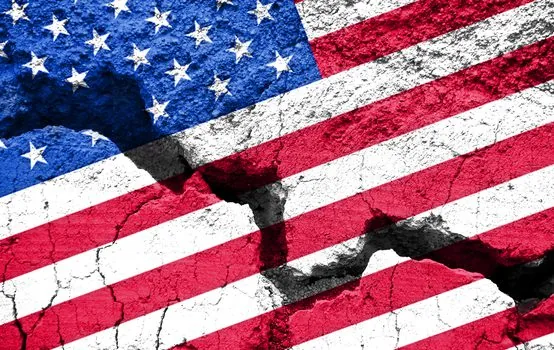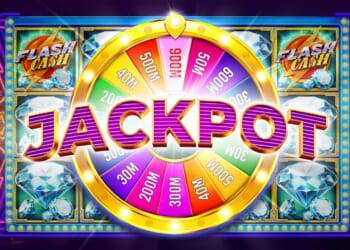
[Order Michael Finch’s new book, A Time to Stand: HERE. Prof. Jason Hill calls it “an aesthetic and political tour de force.”]
Turning Point USA founder Charlie Kirk was already positively impacting the world with his indefatigable, peaceful, joyful, godly work to change hearts and minds, but in mere days, his assassination by a cowardly sniper’s bullet has already launched a tsunami of change he likely could not have imagined. The world is entering a different epoch now, and as with all shifts into a new age, there will be birthing pains.
I can’t recall whose insight this was, but someone online observed that Charlie’s murder was an “Archduke Ferdinand moment” – referring to the assassination that triggered World War I. I think that captures the sobering magnitude of Charlie’s martyrdom (yes, literal martyrdom; as others have pointed out, Charlie was killed not for his politics but for his Christian faith, which shaped his political positions). But his brutal murder drives home the point that we are already in a hot civil war in this country – not just a culture war, not a figurative civil war, but a hot civil war.
But so far only one side has been waging that war. From the assassination of healthcare CEO Brian Thompson at the hands of a terrorist-turned-Left-wing-folk-hero, to the slaughter of Catholic schoolchildren at the hands of a demonic trans terrorist, to Charlie Kirk at the hands (allegedly) of a Left-radicalized young man (with a trans partner) who declared that “some hate can’t be negotiated out,” the Left has already declared war on the political opponents they deem to be fascist threats to democracy who must be exterminated like vermin (hence their dehumanizing rhetoric over the years since the reign of Barack Obama, intensified under Joe Biden).
I am old enough to remember another time when the Left normalized political violence in America. As Bryan Burroughs notes in his book Days of Rage: America’s Radical Underground, the FBI, and the Forgotten Age of Revolutionary Violence, “radical violence was so deeply woven into the fabric of 1970s America that many citizens, especially in New York and other hard-hit cities, accepted it as part of daily life.” Burroughs quotes a retired FBI agent who noted, “People have completely forgotten but in 1972 we had over nineteen hundred domestic bombings in the United States. It was every day. Buildings getting bombed, policemen getting killed. It was commonplace.”
My record at predictions is mixed at best, so I hope I’m wrong about this one, but I believe we are about to enter a new Days of Rage. Political violence is about to become even more “commonplace.” The Left’s repugnant response to Charlie’s murder has already demonstrated that they are not going to be shocked into policing themselves and de-escalating the violence, much less their demonizing, vicious rhetoric. Some Democrat leaders, like Barack Obama, have issued obligatory, tepid statements denouncing political violence, but do not expect that any “moderate” elements on the Left will prevail. The Democrat Party is controlled by the radical Left, and has been since well before the calculated, meteoric rise of Barack Obama.
And the Right is going to have to be prepared to confront that and take the necessary steps to shut it down. I interacted personally with Charlie only a couple of times and didn’t know him that well, but I do know he would not be calling for violent retribution over his killing. And I’m not calling for it either. Nevertheless, those of us on the Right are going to have to come together and get on the same page regarding a just and appropriate response to a political movement that gleefully embraces assassination as a tactic.
We didn’t want this civil war, and we didn’t start it, but we need to be determined to end it. We can and should have many open conversations about what that might entail, but ending it has to be our end game. Our nation cannot sustain itself as things currently stand politically and culturally.
What about finding common ground and calling for unity, you ask? In an address after Kirk’s murder, Vice President JD Vance forcefully delivered a dose of hard reality about the possibility of reconciliation between Left and Right:
There is no unity with people who scream at children over their parents’ politics. There is no unity with someone who lies about what Charlie Kirk said in order to excuse his murder. There is no unity with someone who harasses an innocent family the day after the father of that family lost a dear friend. There is no unity with the people who celebrate Charlie Kirk’s assassination. There is no unity for the people that fund these articles who pay the salaries of these terrorist sympathizers who argue that Charlie Kirk, a loving husband and father, deserved a shot to the neck because he spoke words with which they disagreed.
Vance went on to note that unity is only possible “with people who acknowledge that political violence is unacceptable.” True, but this is essentially saying that unity is impossible, because the Left by and large believes not only that such violence is acceptable, but that it is a necessary tactic to dismantle what they see as the fascistic, systemically white supremacist, Trump regime. Indeed, they believe violence, when they wage it, is a form of speech, while speech, when the Right exercises it, as Charlie Kirk did, is violence – against their designated, “oppressed” victim categories.
I have written and spoken about this often in recent years: bridging the gaping political chasm in America is not possible because there are two distinct Americas today, each side passionately supporting starkly opposed and irreconcilable worldviews.
One side acknowledges that America is imperfect but still takes pride in our exceptionalism; the other side believes America is the villain of history and must be fundamentally remade from the foundations up.
One side wants secure borders, legal immigration, and America First; the other wants open borders, amnesty for millions of illegals, and submission to globalist institutions.
One side holds to the principles of the Constitution and our God-given rights such as freedom of speech; the other believes the Constitution is outdated and unwoke, that God is dead anyway, and that free speech only empowers fascists.
One side believes in the sanctity of unborn lives; the other considers the unborn a mere clump of cells that can be discarded when inconvenient.
One side believes fairness means equality of opportunity; the other believes the remedy for past discrimination is present discrimination.
One side believes nothing justifies rioting and looting; the other defends rioting and looting as reparations for slavery, and considers the terms “rioting” and “looting” themselves to be racist dog-whistles.
One side believes the news media should strive for objectivity; the other believes objectivity is a racist Western concept and that journalists should openly embrace social justice activism.
One side believes, like Charlie Kirk did, in reasoned debate; the other believes that words are violence, that there are no universal truths, and that reason itself is an oppressive tool of white privilege.
One side believes political violence is a sign of Third-World lawlessness; the other believes pre-emptive violence against political opponents is self-defense and anti-fascist.
I could go on, but the obvious point is that on literally every issue facing America today, there is a Grand Canyon-sized gulf between Left and Right perspectives. There is no way to bring these two Americas together, not even in a contentious coexistence. Matter cannot exist in the same space as anti-matter. To borrow from the tagline of the 1986 movie Highlander, “there can be only one.” For the country to survive, one of these worldviews must resoundingly defeat the other in the marketplace of ideas, in the halls of power, and if necessary, in the streets.
We are way past the point where the Left will heed pleas for unity and civility; their lust for total power has vaulted them beyond law and order, beyond morality itself when it comes to crushing political opposition.
For the two Americas to find any common ground to work toward unity, they must share at least a few essential points of agreement like a love for country, a respect for law and order, and a shared sense of American identity, among others. But as long as the country is stretched to the breaking point between such ideological, existential, and moral opposites, the two repelling poles cannot come together. There can be only one.
Follow Mark Tapson at Culture Warrior















